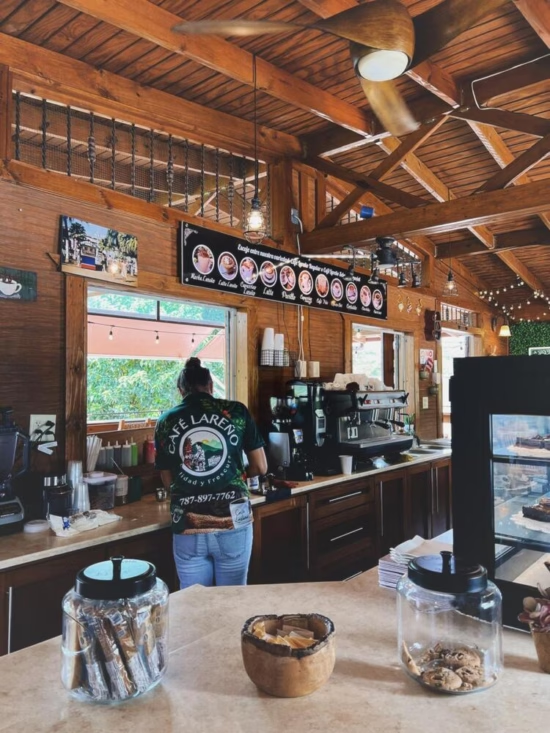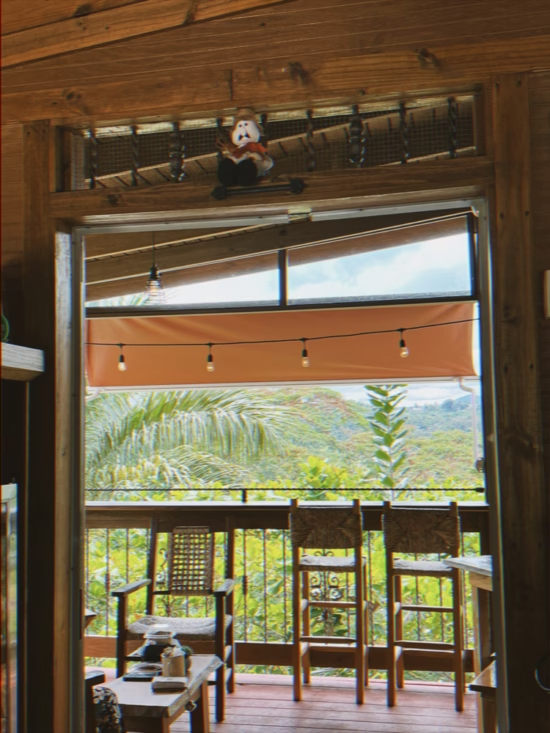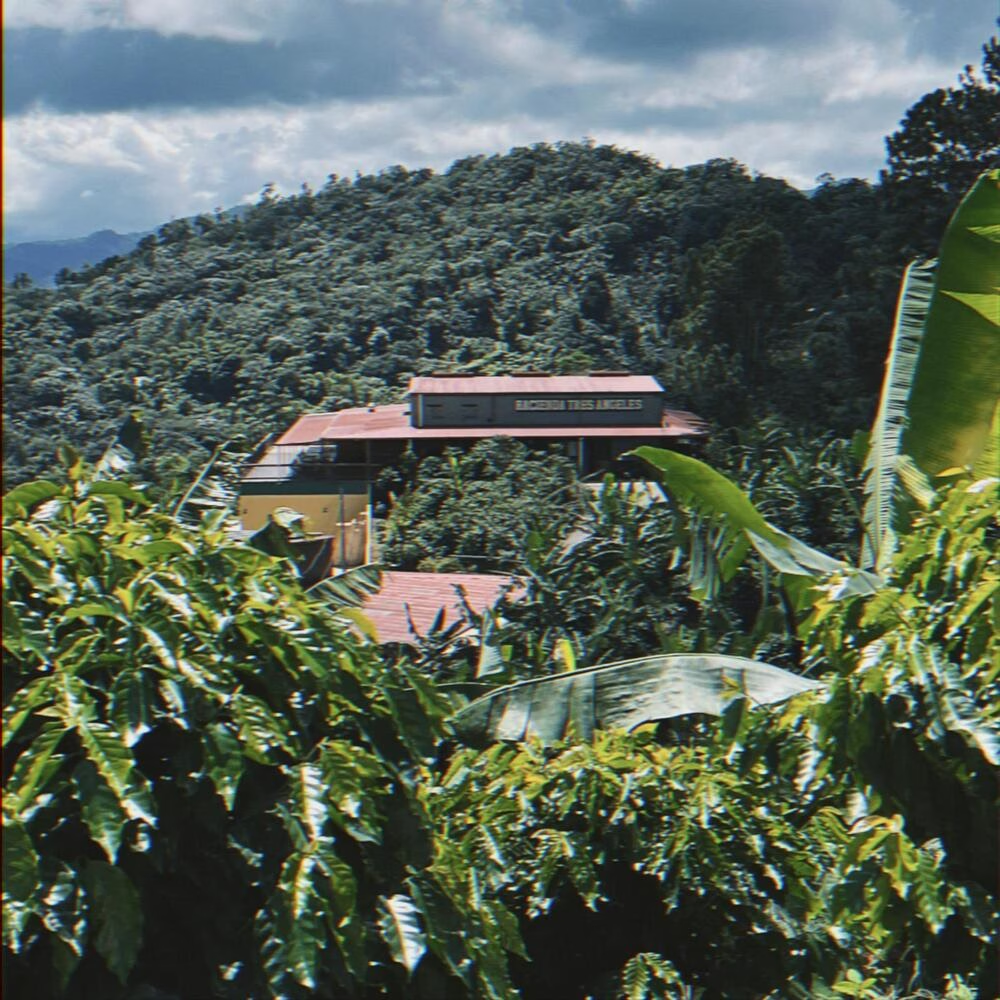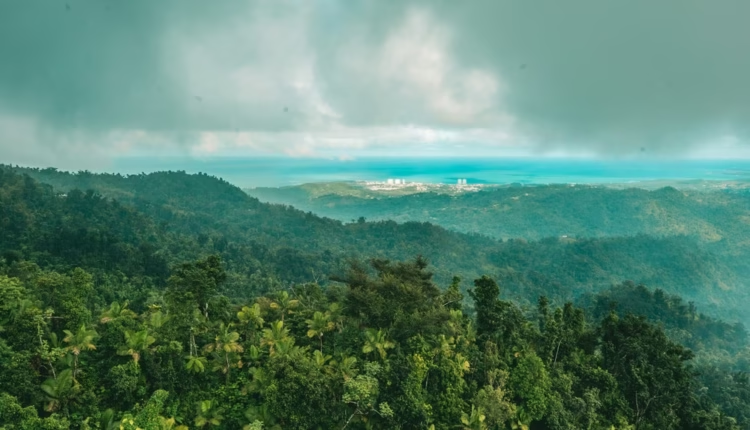Grounds for Growth: How Agritourism is Reviving Puerto Rico’s Coffee Industry: Part Two

In the mountains of Puerto Rico, farming communities are using agritourism to revive coffee production on the island.
BY AMARIS MERCADO
BARISTA MAGAZINE ONLINE
Featured photo by Beau Horyza, all other images courtesy of Amaris Mercado
On Monday, we began our exploration of how coffee leaders in Puerto Rico are beginning to see agritourism as a path forward to revamp the island’s coffee sector. But what does that look like in practice? To find out, we headed into the mountains of La Cordillera Central to meet Puerto Rican coffee farmers bringing the concept to life—offering visitors not just coffee, but a story of resilience, roots, and renewal.
Science, Soil & Storytelling at Café Lareño
On a lush, winding road in the town of Lares sits Café Lareño, a multigenerational, family-run farm where science meets tradition. With a legacy dating back over 30 years, the farm is now stewarded by agronomist David Martinez, whose deep knowledge of soil biology and plant physiology is helping reimagine what Puerto Rican coffee can be. “Owning land simply isn’t enough,” he says. “You need to know how to manage the soil—how to listen to your plants and crops.”


Before Hurricane Maria wreaked havoc in Puerto Rico in September of 2017, Café Lareño had begun planting shade trees, leaning into agro-ecological practices that favor long-term soil health and biodiversity. After the storm devastated the island, they replanted everything, doubling down on those practices and reaffirming their values.
David explained that former government policies once required guava shade trees, only to later promote sun-grown monoculture. Now, as shade-grown systems return, he’s hopeful. “It’s not just about trends,” he says. “Puerto Rico’s steep terrain and non-volcanic soil demand a different approach than other producing countries.”





Today, Café Lareño blends agronomy with immersive experiences. Their tours—equal parts educational and sensory—draw researchers, university students, and curious travelers. Their Café Bajo Sombra, a 100% shade-grown arabica, is packaged separately from their blends. Visitors can sip a café con leche on the patio, overlooking the very fields where the beans were grown.
From the City to Farm Life at Hacienda Tres Ángeles
Twelve years ago, the owners of Hacienda Tres Ángeles left city life behind to pursue what they called a “life mission”—revitalizing a coffee farm and creating a space to celebrate Puerto Rican agriculture. Though they had no prior connection to coffee, their passion quickly made them trailblazers. Hacienda Tres Ángeles Is the island’s first certified agritourism coffee farm, even featured in a United Nations tourism series as a “World Champion in Tourism.”



Each Saturday, guests embark on a full “crop-to-cup” journey, walking the land, learning the process, and ending with a view and a coffee at their on-site restaurant. “Puerto Rico is more than piña coladas and beaches,” says co-owner Naomi Gómez Robles. “Our goal is to show visitors another side of the island. When people visit, they learn about our culture, our history, and how much care goes into a cup of coffee. It changes how they drink it.”
But even paradise has challenges. When the farm began, they had over 80 cherry pickers. Now, they’re “barely down to one,” Naomi says. Labor shortages have forced them to sponsor international workers, but visa delays and high labor costs often derail harvests. Insurance claims after hurricanes are slow and underpaid, especially when storms like last year’s Hurricane Ernesto don’t make direct landfall.
Still, Hacienda Tres Ángeles invests in the future. With USDA support, they’ve installed solar panels and planted native shade trees like inga vera. Their coffee has even reached international shelves through partnerships with Nespresso and specialty roasters, proving how agritourism opens doors—when resilience meets opportunity.
Coffee, Culture, and Climate
Across agritourism farms like Café Lareño, Hacienda Tres Ángeles, and others, one thing is clear: agritourism in Puerto Rico is more than a business model—it’s a movement. It’s farmers opening their homes and histories to the world, embodying the saying, “Mi casa es tu casa,” or, “My house is your house.”



These farms juggle storytelling, sustainability, and survival. They plant bird-friendly shade trees, run on solar energy, and teach their guests about the journey from seed to sip. But no amount of planning can stop hurricanes. The island’s harvest season overlaps with the storm season, making recovery part of the rhythm. Fallen trees, damaged roads, and uncertain insurance are just part of the challenge. Still, they carry forward.
Through café tours, comida criolla (Puerto Rico’s traditional cuisine), and coffee brewed just steps from where it’s grown, they’re reshaping the narrative: Coffee in Puerto Rico isn’t just surviving—it’s evolving. On the mountaintops of Puerto Rico, the land tells an age-old story of resilience, and these agritourism farms are dedicated to retelling that story, well into the future.
ABOUT THE AUTHOR
Amaris Mercado (she/her) is a Puerto Rican writer, researcher, and café wanderer based in Rome. Passionate about coffee, sustainability, and storytelling, she explores the world one cup at a time and shares her journey on her coffee-focused Instagram, @caffeologie.
Subscribe and More!
As always, you can read Barista Magazine in paper by subscribing or ordering an issue.
Read the June + July 2025 Issue for free with our digital edition.
For free access to more than five years’ worth of issues, visit our digital edition archives here.
Source: Barista Magazine



